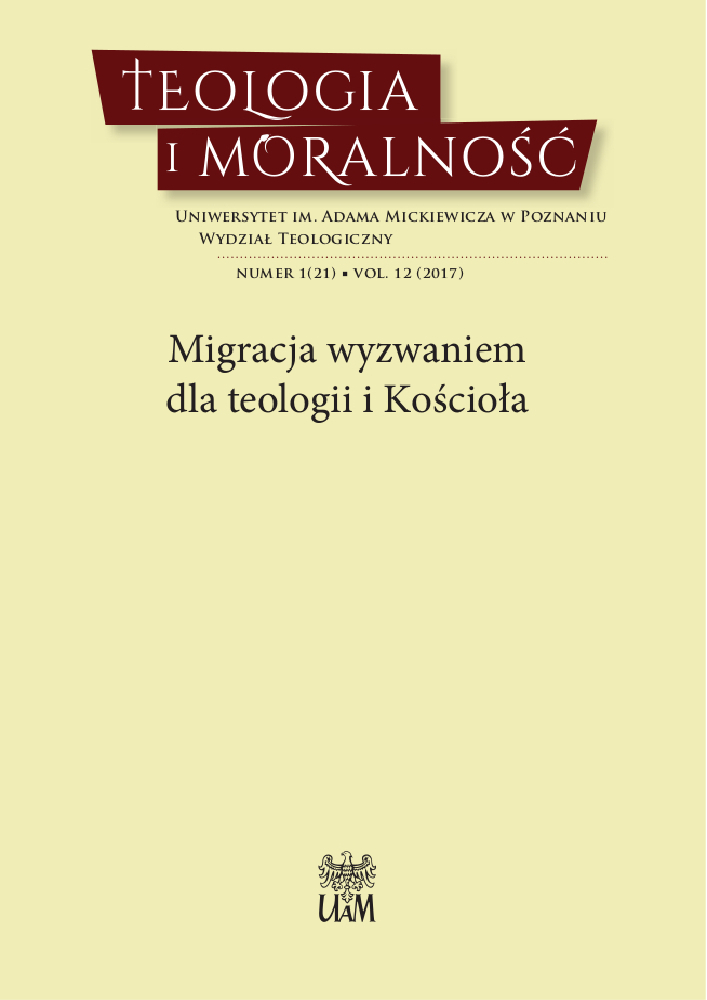Abstract
Death is a part of human life – a part which cannot be deleted. Both earlier and nowadays it pushes people to ask about its reason, consequences, nature and how to get ready for it. The response for the ultimate question were books about the art of dying, which first of all were written in the Middle Ages.
People are dying also today, so there is a need to work out a “new art of dying”, which is compatible with the mentality of a contemporary human being. The first step is to analyse if and how medieval texts can help or explain it. An analysis in the light of contemporary eschatology of one of such texts: De artre moriendi written by J. Gerson is the point of the following article. The first chapter is about the final things in human life such as death, paradise, purgatory and hell, which are described by Gerson. In the second chapter there is presented the teaching of the International Theological Commission concerning those issues enclosed in the document Some current questions in Eschatology (1992). The third chapter is an attempt to compare the eschatology of both texts.
The study allows to draw a conclusion that the medieval treatise of Gerson is not an anachronism, but might be a precious inspiration for contemporary theologians. Eschatology included in that treatise is faithful to contemporary eschatology, so it is possible, after doing some revisions and additions, to build ars moriendi for contemporary human based on it.
References
Ars moriendi ars vivendi ars educandi, red. Z. Rudnicki, Poznań 2012.
Bartoszewski K., Zbiciak J., Ars moriendi, w: Encyklopedia katolicka, red. F. Gryglewicz i in., Lublin 1973, t. 1, kol. 950-951.
Bartoszewski L., Zanim nadejdzie śmierć... czyli ars bene moriendi, Gdańsk 2015.
Baumgartner K. i in., Ars moriendi, w: Leksikon für Theologie und Kirche, red. W. Kasper i in., Freiburg–Basel–Rom–Wien 19933, t. 1, kol. 1035-1038.
Bellarmin R., De arte bene moriendi, tekst angielski zob: https://archive.org/details/theartofdyingwel00belluoft [dostęp: 03.04.2017].
Berthier J., Metoda asystowania umierającym (1891), tłum. W. Biedrzycki, Górka Klasztorna 2015.
Biedrzycki W., Przy łożu śmierci. „Metoda towarzyszenia umierającym” ks. Jana B. Berthiera, w: Śmierć i wiara w życie pośmiertne w świetle nauk przyrodniczych i humanistycznych, red. M. Machinek, Biblioteka Wydziału Teologii 17, Olsztyn 2003, s. 257-267.
Capranica D., Speculum artis bene moriendi, w: M. Włodarski, Trzy traktaty o sztuce umierania, Kraków 2015, s. 121-212.
Gerson J., De arte moriendi, przekład i opracowanie M. Włodarski, w: M. Włodarski, Trzy traktaty o sztuce umierania, Kraków 2015, s. 43-62.
Hausberger K., Johannes Chalier Gerson, w: Leksikon für Theologie und Kirche, red. W. Kasper i. in., Freiburg–Basel–Rom–Wien 19963, t. 5, kol. 909-910.
Liguori A., Przygotowanie do śmierci, tłum. J. Serafin, Kraków 2016.
Machinek M., Czy umieranie jest sztuką? O chrześcijańskiej „ars moriendi”, w: Śmierć i wiara w życie pośmiertne w świetle nauk przyrodniczych i humanistycznych, red. M. Machinek, Biblioteka Wydziału Teologii 17, Olsztyn 2003, s. 241-255.
Machinek M., Śmierć w dyspozycji człowieka. Wybrane problemy etyczne u kresu ludzkiego życia, Bibliotek Wydziału Teologii 22, Olsztyn 20042.
Machinek M., Towarzyszyć w ostatniej drodze. „Metoda asystowania umierającym” ks. Jana Berthiera a współczesna troska o umierających, w: Cor unum et anima una, red. A.J. Sobczyk, Pelplin 2009, s. 79-94.
Manser J., „Wer mich zum Freunde hat, dem kann’s nicht fehlen”. Versuch einer spirituellen Theologie zur Ars moriendi heute, w: Erwägungen zur Kunst des Sterbens, red. H. Wagner, T. Kruse, Quaestiones Disputatae 118, Freiburg–Basel–Wien 1989, s. 69-98.
Mateusz z Krakowa, Ars moriendi ex variis scripturarum sententiis collecta, w: M. Włodarski, Trzy traktaty o sztuce umierania, Kraków 2015, s. 63-120.
Międzynarodowa Komisja Teologiczna, Aktualne problemy eschatologii (1992), http://www.vatican.va/roman_curia/congregations/cfaith/cti_documents/rc_cti_1990_problemi-attuali-escatologia_pl.html [dostęp: 03.04.2017].
Misiurek J., „Ars moriendi” – sztuka umierania, w: Cierpienie i śmierć, red. A. Nowak, Homo Meditans 13, Lublin 1992, s. 231-244.
Müller G.L., Dogmatyka katolicka, tłum. W. Szymona, Kraków 2015.
Nitrola A., Trattato di escatologia. II. Pensare la venuta del Signore, Cinisello Balsamo (Milano) 2010.
Pieńkowska-Wyżyńska B., Sztuka dobrego umierania, Kraków 2015.
Pisula R., Odpusty w Misterium Kościoła. Źródła, natura, praktyka, Poznań 2001.
Ratzinger J., Introduzione, w: Congregazione per la Dottrina della Fede, Temi attuali di escatologia, Vaticano 2000, s. 9-17.
Rolfes H., Ars moriendi. Eine Sterbekunst aus der Sorge um das ewige Heil, w: Ars moriendi. Erwägungen zur Kunst des Sterbens, red. H. Wagner, T. Kruse, Quaestiones Disputatae 118, Freiburg–Basel–Wien, 1989, s. 15-44.
License

This work is licensed under a Creative Commons Attribution-NoDerivatives 4.0 International License.
